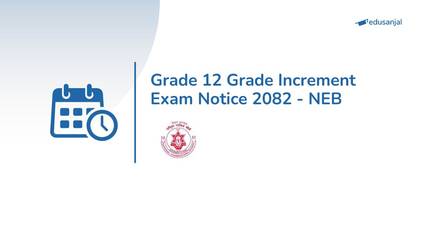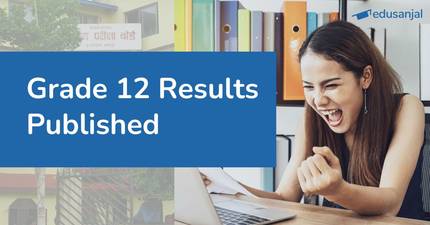Students in schools who rely on study guides, guess papers, old question papers, or other useful materials available in the market to prepare for exams will no longer find them beneficial. This is because the National Examination Board has implemented a standardized examination system. As a result of this new system, questions that were previously asked in the annual exams will not be repeated for at least five years. Currently, questions tend to be repeated every year in the exams.
According to Dr. Mahashram Sharma, the board's chairman, efforts are being made to discourage the practice of acquiring and memorizing old question papers available in the market. He stated, "Questions that have been asked once will not be repeated for a minimum of five years." He emphasized that the traditional approach of simply providing a basic response is no longer effective.
From this year onward, the board has introduced this system in the subjects of Mathematics, Science, and English for class 10 (SEE) as part of the initial phase. The implementation of this system will extend to other classes in the following year. To facilitate this, the board is in the process of creating numerous sets of question papers. These question papers have been meticulously prepared by hundreds of teachers across the country and have undergone testing. Both municipal authorities and the board will collaborate in generating the question paper from the available set. The board assures that confidentiality will be maintained since access to the question paper will be restricted to a limited number of individuals.
According to Dr. Sharma, the chairman of the board, the adoption of the standardized examination system was prompted by a shift in focus among students. Instead of nurturing their creative abilities through regular classroom study, students began prioritizing exam-oriented approaches. Dr. Sharma expressed the hope that this examination system will encourage students to truly grasp and retain what they have learned throughout their academic journey, even after they have moved on from different grade levels. He emphasized the importance of teachers following the curriculum rather than solely relying on textbooks for instruction.
In this process, the board created sets of question papers categorized as easy, medium, and difficult. However, when students were assessed, it became evident that the difficult questions were not appropriate for weaker students, while the easy questions did not challenge the more capable students. As a result, a balanced question paper was prepared, aiming to cater to a wider range of abilities. Furthermore, it was observed that there was a significant disparity in the marks awarded by different examiners for the same answer sheet in school-level examinations. The board believes that the implementation of the standardized examination system is well-suited to address and minimize this discrepancy.
Vishnunarayan Shrestha, the controller of examinations (class 10) for the board, highlighted a significant issue regarding the evaluation process. He noted that when assessing the same answer sheet, teachers discovered a discrepancy of up to 20 marks. Furthermore, it was observed that the same teacher could assign different marks to the same answer sheet on different occasions. Shrestha expressed concern over the confusion and unfair treatment experienced by students due to this inconsistency. He emphasized that implementing a standardized examination system would be a suitable approach to minimize these discrepancies and ensure greater fairness in the evaluation process.
According to Prof. Dr. Prakashman Shrestha, a specialist in the standardized examination system, this approach offers significant advantages over the traditional method of conducting and evaluating exams. However, he emphasized the need for thorough research and preparation before implementing the system. He suggested that a substantial number of model question papers should be developed and tested on students. By carefully analyzing the results and feedback, an appropriate question paper can be formulated for actual implementation.













